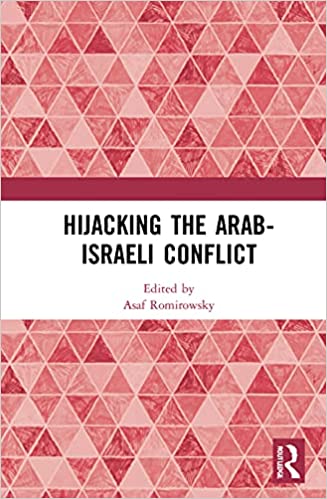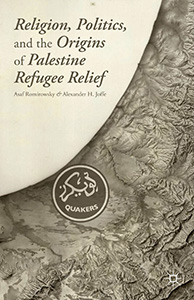 |
|
 |
| biography | articles | media coverage | spoken | audio/video | books | announcements | mailing list |
Latest Articles
U.N. Relief and Works Agency is an inseparable arm of Hamas
April 13, 2024 • The Washington Times
Since last year's Oct. 7 attacks on Israel by Hamas, no U.N. agency has garnered as many headlines as UNRWA, the United Nations Relief and Works Agency for Palestine Refugees in the Near East.
The U.N. agency, created in 1949, had one primary purpose — to resettle purported Arab Palestinian refugees and their descendants, created in the wake of the Arab states' failure to annihilate the nascent state of Israel following its establishment in 1948.
The way to address antisemitism on college campuses is to defund and deport
March 22, 2024 • Jerusalem Post
Here's a snapshot of what it's like to be Jewish on an American college campus these days: In Tulane, a Jewish student engaging classmates who were burning the Israeli flag was assaulted and had his nose broken.
In Columbia, a verbal exchange about the war in Gaza escalated into an altercation, with a Jewish student hit forcefully on the head and sent to the hospital.
Pro-Palestinian students at Harvard marched openly through campus, calling for an armed uprising that would lead to the eradication of the world's only Jewish state. Death threats, harassment, exclusion—these are now the rule, not the exception, on the quad.
Corrupted from Birth: The UNRWA's Forgotten History
February 25, 2024 • The National Interest
The discovery of a Hamas server farm beneath the United Nations Relief and Relief Agency (UNRWA) 's Gaza headquarters culminates a catastrophic few months for the world's largest welfare organization. Israeli intelligence recently found that at least a dozen UNRWA employees were directly involved in the October 7 massacres, and at least 1,200 had ties to Hamas. In addition, UN Watch released a report showing that over 3,000 UNRWA employees cheered on the October 7 report on private communications channels.
We must keep terrorists out — by any means necessary
February 18, 2024 • The Hill
Last month, the House voted on what ought to have been the easiest resolution in recent memory.
Introduced by Rep. Tom McClintock (R-Calif.), the No Immigration Benefits for Hamas Terrorists Act sought to achieve one simple goal: keep any terrorist who participated in or facilitated the Oct. 7, 2023, massacre of thousands of innocent Israelis from entering the U.S.
You would think that even in an American political landscape as highly partisan and divisive as our own, you'd find no one who disagrees with the premise that we shouldn't welcome terrorists who have raped women, beheaded children and executed entire families.
You'd be wrong.
The Crisis in Higher Education and Advice for Donors
December 21, 2023 • RealClearWorld
Among the most shocking side effects of Hamas' horrific October 7th attack on Israel has been to expose the indecency at the heart of the American university. The question is what to do about it.
Before the Israeli victims' blood had dried celebrations broke out on American campuses, applauding Hamas' "audacity" and "ingenuity" in bringing murder, rape, torture and kidnapping to some 1,200 Israelis.
University administrators responded clumsily, with only a small percentage issuing statements (as opposed to their quick responses to the killing of George Floyd and other outrages). This set into motion three hugely consequential series of events.
Books by Asaf Romirowsky


Most Viewed
home | biography | articles | media coverage | spoken | audio/video | books | announcements | mailing list | mobile site